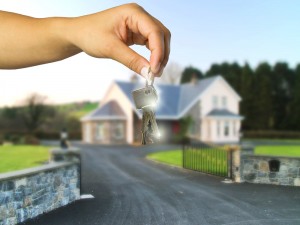Congratulations, you are on your way to purchasing your dream home, here is what you should know about the biggest investment of your life.
Purchasing a home in this day and age is an expensive proposition, one must be mindful of available government incentives and initiatives designed to reduce the financial burden and ease the process of making their dream home a reality. In this article I will discuss some of these initiatives, including the first-time home buyer RRSP withdrawal, First-Time Home Buyers’ Tax Credit (HBTC), GST/HST Home Buyer Rebate and the Land Transfer Tax Credit.
First, a note of clarification regarding the difference in the definition of a first-time home buyer from the perspective of the Canada Revenue Agency (CRA) for tax purposes and the municipal and provincial government for land transfer tax purposes. According to the CRA, a first-time home buyer is anyone who has not lived in a home owned by oneself or one’s spouse or common-law partner in the year of acquisition, or in any of the four preceding years. Thus, even if you or your spouse/common law partner have previously owned a home that you lived in, so long as you have not been doing so in the 5 years prior to your new home purchase, you are considered a first-time home buyer. Land transfer tax rules differ in that you can only ever qualify once and even then you would need to occupy the property as your principal residence within 9 months of your purchase. Thus, if your first property purchase is strictly for investment purposes, a key implication of this 9 month requirement is that it will not be eligible for the provincial rebate of $2,000, nor will you qualify for the municipal rebate of $3,725 if you’re buying a home in Toronto. The CRA, however, will permit you to purchase a property as an investment and still qualify as a first-time home buyer on your second property.
Q: I owned a property in another country before moving to Canada. Do I qualify for the Land Transfer Tax Rebate?
A: One of the conditions for the Land Transfer Tax Rebate is that you cannot have ever owned an eligible home, or an interest in an eligible home, anywhere in the world.
Two privileges afforded to first-time home buyers under the CRA is the ability to utilize your RRSP to capitalize your down payment and the First-Time Home Buyers’ Tax Credit. You can borrow up to 25k from your RRSPs for a down payment, which represents a substantial amount for most first-time home purchasers. Repayment of the borrowed amount is to be made over a period of 15 years, commencing 2 years after the withdrawal is made. The RRSP is a source of refund on your tax return and, depending on your marginal tax bracket, could result in upwards of 46% back. Should you need more detailed information about the withdrawal process for RRSPs refer to my article here .
Q: I have already used up my first-time home buyer withdrawal before, can I utilize it again?
A: As long as you qualify as a first-time home buyer under the CRA, and provided you have paid back your first RRSP withdrawal in full before the year of purchase, you are permitted to utilize it again.
Next is the Home Buyer amount. This is a 5k non-refundable tax credit which works out to $750 back to a first-time home buyer. This credit could be shared or used by one person and must be applied for in the tax return concurrent to the year the purchase was made.
Q: Can I qualify for the Home Buyer tax credit even though I don’t qualify for the first-time home buyer RRSP Withdrawal?
A: As long as you are considered a first-time home buyer under the CRA, you are eligible to apply for both the Home Buyer tax credit and RRSP withdrawal again, with the only point of difference being that qualification of another RRSP withdrawal is, as mentioned earlier, dependant on whether you have paid back the previous RRSP withdrawal in full. Your ability to reapply for the Home Buyer amount is not affected either way.
Q: My partner was considered a first-time home buyer when they purchased a property, am I still eligible to use my first-time home buyer privileges when we get married?
A: As long as you have not lived in the property that belonged to your partner while you are married or considered to be common-law, you may still utilize your home buyer privileges.
Another key consideration if purchasing a new home is the implication on the HST Rebate. While there is no HST on the resale of a property, there are HST implications to be considered on newly constructed properties. I have previously written a detailed article on the issue here.
In summary, when buying a property from a builder there is an associated HST charge, but this is partially offset by an HST rebate that one will qualify for. The process is straightforward if the property is to be your principal residence; the rebate is handled by the builder and included in the final price. However, things get dicey when the property is to be used as an investment. In this case, the full amount of HST must be paid up-front, then the purchaser must apply for the new residential rental property rebate. The rebate will be granted provided the property is leased for at least 1 year from the transfer of ownership (meaning one year from closing, not occupancy). Consequently, your purchase price for the property will always be higher in the case of an investment property purchase. Always speak with your accountant when making such a big investment before making a first deposit or down payment on a property.
Q: What if I rent out my condo during its occupancy phase before it closes? Since most of the amenities may not be available, I don’t want to move in yet.
A: You or a relation to you must be the first occupant of the property. If someone else occupies the property, even before closing, you have forfeited your right to the HST rebate. CRA have several means of discovering who the first occupant of the residence is, one of which is to check with the ministry of transportation.
Q: I have purchased a property and plan to live in it as my principal residence. How long do I have to live in it to satisfy the CRA’s requirement for principal residence?
A: Each case dealing with consideration of a principal residence for HST purposes is handled on a case-by-case basis as there is no period specified in the income tax act regarding the ownership of a property being considered principal or investment. If the residency period is fairly short, less than a year for instance, as long as you can justify the reasoning for such a short residency, it may be enough to satisfy the CRA. For example, a qualified reason might be that shortly after moving into the property, your parents fell ill, thus requiring you to live with them. Another possibility is that you moved to a different city for work purposes.
One such credit is the Healthy Home Renovation Tax Credit. You can find more information here.
Disclaimer: The information contained herein is not meant to be professional advice but for educational purposes only. You should consult with your accountant when handling such matters.

